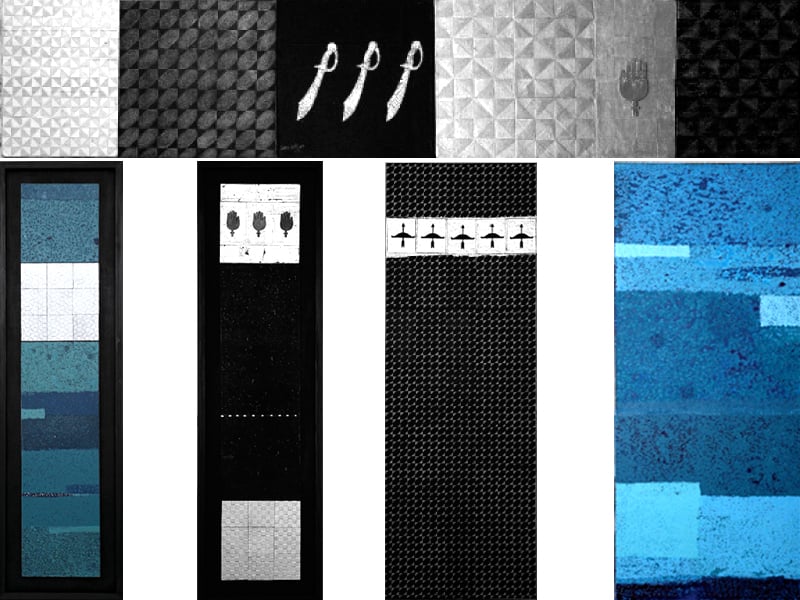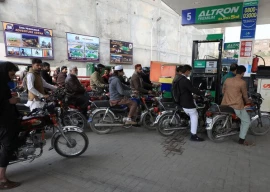
There is a certain resonance to the artworks by artist Meher Afroz that went up on display at the Khaas Art Gallery on Tuesday. If one looks long enough, the symbolic imagery appears to be communicating with the viewer in a hushed visual voice.
Instead of imposing her ideas on others, the artist lets the pieces speak for themselves. It is the spirit, the nuance and the essence of the work that she seems more interested in transmuting.
“My paintings are my statement,” as she puts it, adding that she did not want to add furthermore. “When I explain my work, it limits the meaning so I want you to relate.” The work can be interpreted in several ways. It speaks of the divine connection, the relationship of man and woman and their responsibilities, the national anthem and the constitution, spirituality, science and mathematics among other themes.
“The shapes connect to represent the glorious past, the weaknesses and strength, the knowledge in every field that we have acquired to become a good human being and which we have lost,” says Afroz.
Titled “Bahisht-e-Gumshuda” (The Lost Paradise), the series comprises a total of 10 paintings and six drawings. Afroz has painted the symbols on vasli and embossed them on boards in a manner that is similar to calligraphy and print-making. However, she insists they are not mere paintings or drawings but a continuity of thought and expression, a silent protest of being aloof about everything the individuals or the nation possesses but are not realising to their benefit.

The textures are created from mixed media application of acrylic, silver leaf and graphite. The palette utilises varying shades of turquoise, blue, green, black and red.
Elaborating on the series, the gallery curator Alia Bilgrami says, “While Meher’s previous work was a lot more figurative, this one is more geometric and minimalist. She always had these sections in her work but now, you can see a lot more divisions and textures and that’s interesting because her work has to do with the self-destruction of society,” she comments.
“I have to say that there are some very powerful symbols in these paintings, they remind me intricate Sindhi patterns,” commented documentary-filmmaker and activist Samar Minallah.
Other prominent guests at the exhibition included the renowned artists and couple Mansur Rahi and Hajra Mansur, social activists Tahira Abdullah and Fauzia Minallah, poet and writer Kishwar Naheed and art curators Noshi Qadir and Asma Rashid Khan.
Afroz has received numerous awards and accolades for her work at home and abroad. Currently, she teaches drawing as a retired professor and visiting faculty at the Indus Valley School of Arts and Architecture in Karachi.
The exhibition will continue through April 28 daily except Sundays.
Published in The Express Tribune, April 16th, 2014.


1725443747-0/Untitled-design-(5)1725443747-0-165x106.webp)














COMMENTS
Comments are moderated and generally will be posted if they are on-topic and not abusive.
For more information, please see our Comments FAQ